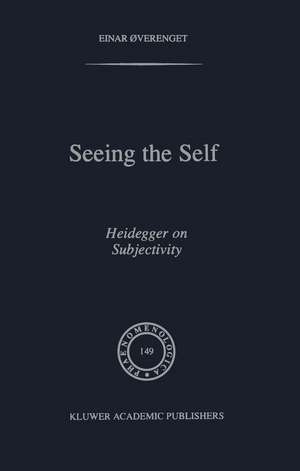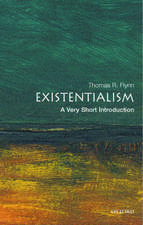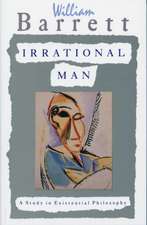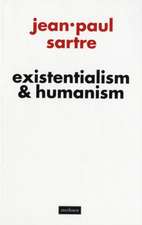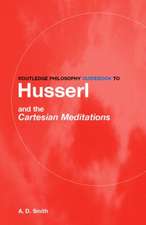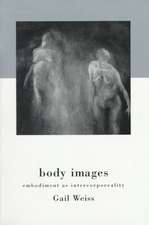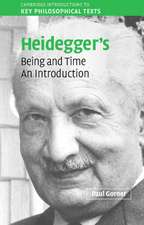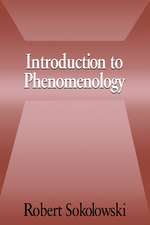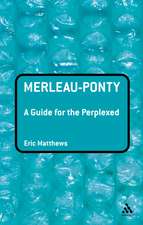Seeing the Self: Heidegger on Subjectivity: Phaenomenologica, cartea 149
Autor Einar Øverengeten Limba Engleză Paperback – 30 noi 2001
Din seria Phaenomenologica
- 20%
 Preț: 825.73 lei
Preț: 825.73 lei - 13%
 Preț: 478.41 lei
Preț: 478.41 lei - 20%
 Preț: 629.14 lei
Preț: 629.14 lei - 13%
 Preț: 491.47 lei
Preț: 491.47 lei - 13%
 Preț: 542.56 lei
Preț: 542.56 lei - 20%
 Preț: 553.68 lei
Preț: 553.68 lei - 15%
 Preț: 633.02 lei
Preț: 633.02 lei -
 Preț: 417.02 lei
Preț: 417.02 lei -
 Preț: 417.90 lei
Preț: 417.90 lei -
 Preț: 418.29 lei
Preț: 418.29 lei -
 Preț: 389.49 lei
Preț: 389.49 lei -
 Preț: 425.42 lei
Preț: 425.42 lei - 15%
 Preț: 577.72 lei
Preț: 577.72 lei - 15%
 Preț: 527.32 lei
Preț: 527.32 lei - 15%
 Preț: 636.80 lei
Preț: 636.80 lei - 18%
 Preț: 952.89 lei
Preț: 952.89 lei - 18%
 Preț: 949.42 lei
Preț: 949.42 lei - 15%
 Preț: 643.65 lei
Preț: 643.65 lei - 18%
 Preț: 1225.48 lei
Preț: 1225.48 lei -
 Preț: 389.31 lei
Preț: 389.31 lei - 18%
 Preț: 1113.39 lei
Preț: 1113.39 lei - 18%
 Preț: 952.40 lei
Preț: 952.40 lei - 18%
 Preț: 1713.67 lei
Preț: 1713.67 lei - 18%
 Preț: 1551.73 lei
Preț: 1551.73 lei - 18%
 Preț: 1222.31 lei
Preț: 1222.31 lei - 18%
 Preț: 944.19 lei
Preț: 944.19 lei - 15%
 Preț: 642.51 lei
Preț: 642.51 lei - 18%
 Preț: 1112.78 lei
Preț: 1112.78 lei - 18%
 Preț: 891.80 lei
Preț: 891.80 lei - 18%
 Preț: 948.47 lei
Preț: 948.47 lei - 18%
 Preț: 1224.18 lei
Preț: 1224.18 lei - 18%
 Preț: 946.87 lei
Preț: 946.87 lei - 15%
 Preț: 578.84 lei
Preț: 578.84 lei - 15%
 Preț: 464.18 lei
Preț: 464.18 lei - 18%
 Preț: 839.56 lei
Preț: 839.56 lei
Preț: 637.10 lei
Preț vechi: 749.52 lei
-15% Nou
Puncte Express: 956
Preț estimativ în valută:
121.91€ • 127.74$ • 100.78£
121.91€ • 127.74$ • 100.78£
Carte tipărită la comandă
Livrare economică 12-26 aprilie
Preluare comenzi: 021 569.72.76
Specificații
ISBN-13: 9781402002595
ISBN-10: 1402002599
Pagini: 348
Ilustrații: 348 p.
Dimensiuni: 155 x 235 x 18 mm
Greutate: 0.48 kg
Ediția:Softcover reprint of the original 1st ed. 1998
Editura: SPRINGER NETHERLANDS
Colecția Springer
Seria Phaenomenologica
Locul publicării:Dordrecht, Netherlands
ISBN-10: 1402002599
Pagini: 348
Ilustrații: 348 p.
Dimensiuni: 155 x 235 x 18 mm
Greutate: 0.48 kg
Ediția:Softcover reprint of the original 1st ed. 1998
Editura: SPRINGER NETHERLANDS
Colecția Springer
Seria Phaenomenologica
Locul publicării:Dordrecht, Netherlands
Public țintă
ResearchCuprins
I. Wholes and Parts.- 1. Husserl on Wholes and Parts.- 2. Wholes and Parts and Transcendental Phenomenology.- 3. The Presence of the Theory of Wholes and Parts in Being and Time.- 4. The Theory of Wholes and Parts in Heidegger’s Marburg-Lectures.- 5. The Concreteness of the Seinsfrage.- II. Categorial Intuition.- 1. Husserl on Seeing Objects of Higher Levels.- 2. Intentionality and Evidence.- 3. Categorial Intuition.- 4. Heidegger’s Analysis of Categorial Intuition.- 5. Intentional Fulfillment.- 6. Intuition and Expression.- 7. Categorial Acts: Synthesis and Ideation.- 8. Constitution.- III. Apriorism.- 1. The Phenomenological Sense of the Apriori.- 2. Analytic Description of Intentionality in its Apriori.- 3. Pure Consciousness.- 4. The Being of Consciousness.- 5. Apriori and Concretum.- IV. Existence.- 1. The Phenomenological Reduction and the Analysis of Dasein.- 2. Dasein as Existence.- 3. Situatedness.- 4. Understanding.- 5. Seeing: Understanding, Interpretation, Assertion.- 6. Being-There: Discourse and Falling.- 7. Care.- V. Self-Consciousness.- 1. Phenomenology and Self-Consciousness.- 2. Sartre’s Critique of Husserl.- 3. Kant on the Original Synthetic Unity of Apperception.- 4. Transcendental Apperception and Non-Positional Awareness.- 5. Heidegger and Egology.- VI. Constitution.- 1. Being and Constitution.- 2. Equipment.- 3. Pre-Ontological Confirmation.- 4. Reference.- 5. World.- 6. Disclosedness and Discoveredness.- VII. Self.- 1. Arendt on the Human Condition.- 2. Poiesis.- 3. Inauthenticity.- 4. The One (das Man).- 5. Praxis.- VIII. Unity.- 1. The Question of Primordial Totality.- 2. Anxiety.- 3. Being-a-whole.- 4. Death.- 5. Death and Possibility.- 6. Authenticity.- 7. Resoluteness.- IX. Temporality.- 1. The Traditional Theory of Time and theTemporality of Praxis.- 2. The Temporality of Transcendental Apperception.- 3. Husserl and the Temporality of Absolute Consciousness.- 4. Anticipatory Resoluteness.- 5. Temporality.- 6. Repeating the Existential Analysis.- 7. Temporality and Egology.- Conclusion.
